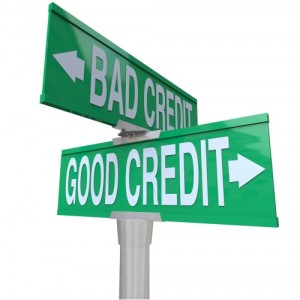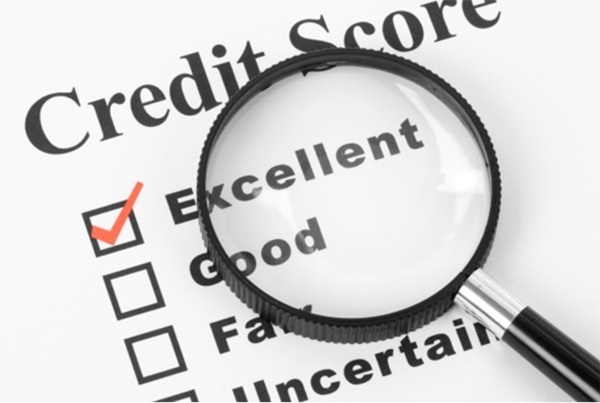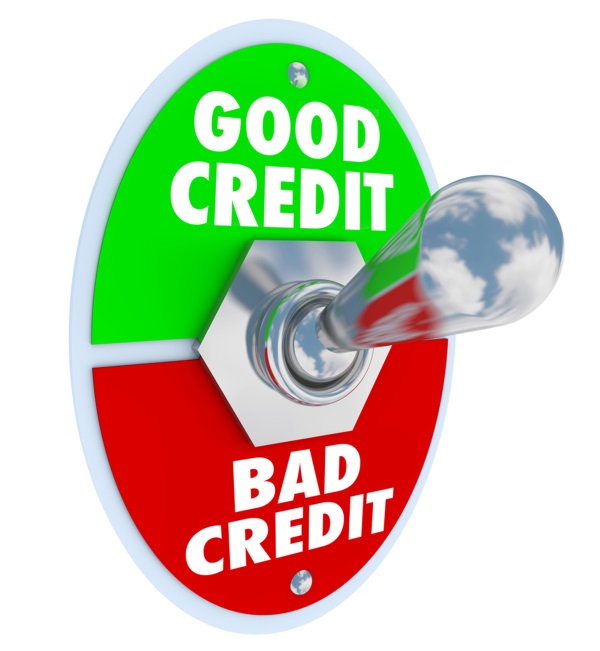Have you ever been rejected for a loan because you had bad credit? If so, I have some GREAT news. You CAN fix your credit score and get approved and a better interest next time you need to get a loan.
All it takes is a little know-how, some discipline and some patience. It won’t take forever, but it may take six months or more to see a significant increase. But — and here’s the really important part — for that to happen you have to know what to do and start doing it — right now.

So let’s get started:
The first and most important thing to do is to start paying your bills on time. The most important bills to pay — credit cards, home loans, car loans, student loans, and other types of installment or revolving debt. Why? They show up on your credit report if you pay the 30 or more days late.
Others bills, including medical, cable or mobile phone bills usually don’t affect your credit score until you pay six months late. This is when they usually get passed to a collection agency. If you have to choose – after you pay the essentials — power, water, groceries, rent or house payment and car — pay your other loans and credit cards first.
Here’s the deal. Old late payments have less of an impact on your credit score as time goes by. That means if you start paying on time, you’ll see your score go up as time passes. Credit experts say you can increase your credit score by 50-plus points in one year by taking this action.
One-time a year, you can get a free credit report from all three of the credit-reporting agencies — Equifax, Experian, and Transunion. Visit annualcreditreport.com to access an online copy of your three credit reports. Review each one for any inaccuracies.
Here’s what you’re trying to find:
So before you go Part 2 of How to Fix Your Credit Score, make a plan for paying your bills on time. You may have to cut out some non-essential services like cable or unlimited data for your mobile phone. You might even have to pick up an extra job or stop eating out so much. But if you have a plan, you can start to get your credit report in much better shape.
That means next time you’re in a tight spot you’ll have more and better loan options. It’s ok to take out a short-term loan, like a payday loan or cash advance, every once in a while, but you don’t want to make it a habit — and you want to pay it back fast. That way you don’t get hit with extra fees and rate increases.
Using your credit wisely or credit utilization is the second biggest factor that affects your credit score. The only thing more important is paying your bills on time.
If you want to learn more about what a credit score is go here. (link to what’s a credit score.)

Now, let’s talk about using your credit wisely, which basically involves two areas.
Credit card utilization is a technical way to say how much available credit you have and how much you have already used.
For example, if you have a credit card or cards with a $1,000 credit limit and you carry a balance of $500 each month your credit utilization is 50% ($500 is 50% of $1,000). If you have a credit limit of $1,000 and run a balance of $800 each month your credit utilization is 80%.
Here’s how you can figure it out for yourself. First add up the total amount of your credit limits (the amount you can charge on each credit or department store card). Next see what the total balance is on each of your credit cards or department store cards. Then take your total balance (for all cards) and divide it by your total credit limits (for all cards). You’ll get a decimal so multiply that number by 100 to get your credit utilization percentage.
Most credit experts recommend that you use, but keep the balance of your card or cards at 30 percent or lower. But, 25 percent is usually considered the most optimum level for boosting your score. That means if you have $1,000 in available credit you should keep your balance at $250 or lower. (According to FICO.com, credit utilization represents about 30% of your credit score.)
Ok. We get that you might sometimes need to charge more than that to pay for a car repair, trip out of town, or even gas. But there’s still a way to do it and still keep your credit card utilization at 25 percent or less.
First, you have to find out the reporting dates for each card you own. You can sometimes do this by asking the credit card issuer, but not always. Then you pay down the balance to the 25 percent level a week or so before the card reports to the credit reporting agencies.
If the card company reports on the 30th of the month, you would pay your balances down to 25 percent before then. After that date, you can use more of your balance and pay it off before the next reporting date.
In our previous example, you would have to pay the $1,000 card down to $250 about a week before the reporting date. (If you mail your payment in, give it two weeks to post to your account.)
This can get a little risky unless you find out the exact date when your card company applies your payment to the credit report. Usually, it is around your payment due date.
Also, never consolidate all your credit card debt onto one credit card. It can actually hurt your credit score unless you keep the other card account open. When you close a credit card account, that card’s available credit no longer counts toward your available credit.
As an example, if you have three cards with a $1,000 credit limit. You have $3,000 of total available credit. If you carry a balance of $500 on each card, you are only utilizing $1,500 of $3,000 or 50 percent. If you close the higher interest card account and transfer all that debt onto the lowest interest card, you now have a credit utilization of 75 percent. You are carrying a $1,500 balance with a $2000 limit).
It’s better to leave the account open even if you don’t use it regularly. You can use it once in awhile and pay it off each month. The only time you may get penalized for too many credit cards is when you have six or more open accounts.
Also, you don’t want to get small personal loans right before you make a major purchase like buying a car or house. The new loan can make your score go down. Plus hard inquires, which take place when a lender accesses your credit report can have a negative impact on your score. (It’s ok to do it yourself through the credit bureaus or a provider like annualcreditreport.com. That’s called a soft inquiry and doesn’t hurt your score.)
There’s one exception. If you open a new credit card account and it substantially increases your available credit, your credit utilization percentage can go down, raising your credit score.
Now that we’ve covered the two biggest credit score killers — paying bills late and credit card utilization, we’ll talk about how to deal with collection accounts.
This is must-read if you have any bills in collections or showing up on your report as a collection account. This can include just about any kind of bills — medical, utility, cable and mobile phone bills.
Collections accounts cause a lot of confusion when you’re trying to raise your credit score. Many people think paying them off will bump their credit score up immediately and find out it doesn’t.
Here’s why: most of the damage is already done. Your score takes the biggest hit when the account first shows up on your credit report. Sometimes it can drop your score by 30 or more points. Ouch!

Since collections impact your score when they first hit your report, the smartest thing to do is focus on the bills that are about to go to collections. You want do everything you can to keep them from showing up on your credit report.
Typically, you’ll get a letter from a collection company saying that your account is about to get reported to the credit bureaus. This is the time to get in high gear. You have 30 days to dispute the charge if it is in error or make arrangements with the debt collector. Some may offer a monthly payment plan or some other payment arrangement. Just make sure you get every promise in writing. Some debt collectors will say anything to get your payment and then not do what they said.
So what about the accounts on your report that have already damaged your credit? The good news is time will cause them to have less and less of an impact on your credit score. But…paying them can actually reactivate an account (or cause them to report the debt again). This can make a debt that’s no longer really affecting your score impact it more. So in most cases it’s better just to leave the debt alone.
Sure, it’s a good idea to get all your collections paid eventually, but you need to pay the most current collection accounts first. Even if you pay the account off, it won’t make your score go up.
If you plan to buy a house, your lender will probably make you pay off all tax liens and court-ordered judgments before they give you a home mortgage. (These accounts usually show up under the “public records” section of your credit report, not the collection account area.
But, things like medical bills, mobile phone bills, old utility bills, etc. that have reported on your credit report are only a problem if they bring your score down. Generally, most of the damage to your score occurs the first month or two the collection is reported.
Read this carefully. If you get all accounts about to go into collections paid and have some extra money you should only pay recent collection accounts — the ones showing up for the first time in the month the report is pulled. This will not necessarily raise your credit score, but it can keep it from dropping more.
It will likely take about six months to see a significant change in your credit score unless you have errors that get removed right away. But be encouraged, if you keep this up for 24 months (2 years) you’ll see a huge difference in your credit score.
Two major things usually cause money and credit problems — either you don’t earn enough or you spend your money on stuff you don’t really need. Take this as your opportunity to look for a better job or work an extra job so you can earn what you need to make this plan work.
Also, start using a spending plan (budget). There are tons of resources for learning how to do this and even free websites like www.mint.com that provide easy-to-use budgeting software.
If you have bad credit and need a loan now (while you rebuild your credit), some lenders will not look at your credit score. You still need a job (earning $1,000 per month), a consistent paycheck, and must be at least 18 years old.